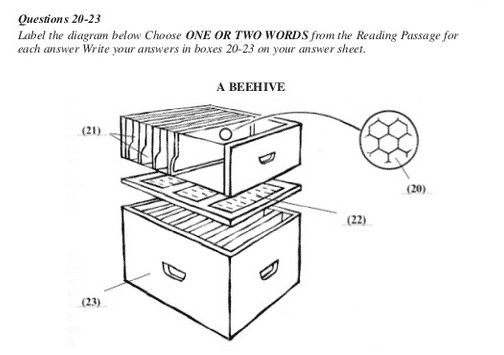
导读:石家庄2013年小升初开始了,那么2013年小升初的学生如何备战小升初英语考试呢?石家庄奥数网小编为大家整理了小升初英语重点句型,一起看一下吧。
石家庄奥数网8月28日:小学《新标准英语》教材中涉及的重要语法知识主要有8种:to be句型、there be句型、一般现在时句型、现在进行时句型、一般过去时句型、情态动词can/could/should引导的句型、一般将来时will/be going to句型、祈使句等,其中多种语法现象广泛出现在各册教材中,现以五、六年级教材为例将重点句型归类介绍如下:
一、to be句型:主要用于介绍个人情况如姓名、健康状况、身份、家庭成员、朋友、职业;描述事物特征;表达方位、长度、年代、颜色、季节、时间、某人的物品及感觉等,该句式广泛分布于各册教材中,其中第1、2册更是以此句型为主,9-12册中这类“四会”句型有:
1. This one is heavy.
2. It's an autumn festival. It's really fun.
3. It isn't hers. It isn't his.
4. Whose T-shirt is it? It's mine.
5. Are you sad? No, I'm not.
6. What's the matter? Nothing.
7. I'm sorry.
8. This black bag is nice. It's big.
9. It's very heavy. Look at this green one. It's light.
10. How long is the Great Wall?
11. It's ten thousand li long.
12. How old is the Great Wall?
13. It's more than two thousand years old.
14. Thanksgiving is my favourite.
15. Families are together.
16. They're deaf.
17. This water is very clean.
18. It's fun to drink this way.
19. How much is it? It's thirteen dollars and twenty-five cents.
20. What's the matter?
21. I'm really excited.
二、there be句型:包括现在与过去两种,即:there is/are, there was/were。用于表达某处有某物的客观存在关系。该句型主要分布在Book5,Book9, Book11和Book12中,教材中以陈述句与how many引导的特殊疑问句问答为主。五、六年级教材中该类重点句有:
1. There weren't any swings here before.
2. There was only a slide.
3. There wasn't a pond here before.
4. There is one now.
5. There are many sweets.
6. There are many fruits, too.
7. There is a Chinatown in New York.
8. There was a big lake and there were lots of ducks.
三、一般现在时句型:这是《新标准英语》中出现频率最高的一类句型,广泛分布在第2~12册教材中,包括第一、二人称及第三人称单数做主语的特殊、一般疑问句问答及陈述句等。9~12册教材中出现的此类句型重点句有:
1. They go to people's houses. They scare the people.
2. He only wants to play.
3. In England, they sit around tables.
4. We sit in lines in China.
5. They sing songs together every morning.
6. We do morning exercises.
7. We have a big, special dinner.
8. Do pandas love bamboo?
9. They eat for twelve hours a day.
10. Do snakes love music? No, they don't.
11. Do you often tidy your room? No, I don't.
12. I often read stories to my little brother.
13. Do you want to visit the UN building? Yes, please.
14. The UN wants to make peace in the world.
15. What do you want? I want a hot dog, please.
四、现在进行时句型:该句型主要分布在Book4,5,8, 11, 12中。包括what, why引导的特殊疑问句句型、一般疑问句问答及肯定句。如:
1. What are you doing?
2. I'm putting my new stamps into my album.
3. All the balloons are flying away.
4. The oranges are falling.
5. Daming is having a birthday party.
6. He is playing the trumpet, but then the telephone rings.
7. Why are you laughing?
8. Why are you wearing cups on your heads?
五、一般过去时句型:该句型分为两类,一类是用be动词过去式was, were作谓语的,主要出现在Book6中,另一类是用行为动词过去式作谓语的,包括肯定句、疑问句、否定句等各种形式。主要出现在Book7,Book8,Book10两类句型的综合应用是在Book9,Book10, Book11,Book12中。B9~12册中“四会”句型如下:
1. My grandma was a driver before.
1. What did she drive? She drove a bus.
2. My grandpa was a flute player before.
3. What music did he play? He played Chinese music.
4. What did she have for breakfast? She had eggs and sausages.
5. And what did she have for dinner? She had fish and chips.
6. I sent you a Maths game. Did you get it? Yes, Grandma.
7. And I sent you English books. Did you read them? Yes, Grandma. I read them.
8. The men wore women's clothes.
9. The actors told lots of jokes.
10. We laughed a lot.
11. ---- What did you put in your bag?
---- My clothes, my shoes, a present, my ticket, my passport and my toothbrush.
12. We ate in a Chinese restaurant.
13. We saw Chinese dancing.
14. I had a very funny day.
15. I took some photos.
16. I bought a book for you. Thank you.
17. Who gave it to you? Your mum gave it to me.
18. In October, ShenzhouⅤ flew into space.
19. He wanted to go into space. Then his dream came true.
20. He spent about 21 hours in space.
21. She was blind.
22. She was deaf.
六、情态动词can/could/should引导的句型:该句型主要出现在Book9
(M6~7,M10),Book10(M3/U2,M4/U2),Book11(M4~5)中。包括一般疑问句及其肯定与否定回答,否定句,及who引导的特殊疑问句问答。如:
1. Can you run fast? No, I can't.
2. You can jump high. You can play basketball well.
3. This dog can help him.
4. Can Fifi help the blind people? No, he can't.
5. You shouldn't play with the CDs!
6. You should tidy your toys.
7. Can you tell me about American festivals? Yes.
8. She can speak some English.
9. Can I write to her? Yes. You can write to her in English.
10. Who can help me? Sorry, I can't.
11. So she couldn't see. So she couldn't hear.
12. But she could learn.
七、一般将来时:教材中出现两种表示将来时的句型,即:will和be going to
句型,主要出现在Book6(M2~5, M9),Book5(M9~10),Book8(M6, M10),Book9(M4)。如:
1. What are we going to do? We're going to have lunch together.
2. Are you going to have a birthday cake? Yes, I am.
3. What will we see there? We'll see lots of very big stones.
4. How will we get there? By car. It will take three hours.
5. I think I'll make a Chinese kite!
6. Will you help me? Of course, I will.
7. And where will you go tomorrow?
8. I'll go to the airport.
9. When are we going to eat?
10. We're going to eat at half past twelve.
11. Look. It's going to rain soon.
12. I will help you.
13. Are you going to go to middle school this September?
14. I will miss you. I will miss you too.
八、祈使句:用以表达请求、要求或命令某人做某事。句型特点是动词用原
型,省略主语。这类句型主要出现在Book8/10/11中,包括肯定与否定形式。如:
1. Click on “Email”。
2. Now click on “Write”。
3. Write your message.
4. Only drink clean water!
九、此外,一种简单的完成时have/has got句型在《新标准英语》中也出现
较多,如:Book5, Book7, Book10,Book11等,包括陈述句(肯定、否定)、疑问句及其回答。如:
1. Have you got the Harry Potter videos?
2. Sorry, we haven't got the videos. But we have got the books.
3. You've got lots of Harry Potter books here! Yes, we have.
4. Have you got any stamps from China? No, I haven't.
5. I've got some Chinese chopsticks.
6. My brother has got a Chinese kite.
7. Have you got a book about America?
相关阅读:
备战2013年小升初:英语常用经典句型集锦
小升初英语常见易错题型解析汇总
小升初英语考试中常考的知识点汇总
小升初分班考试英语常考的交通表达方式
小升初英语时态语法以及特殊单词用法汇总
-
相关文章
- 2021石家庄小升初摇号会持续吗 石家庄小升初摇号政策202
- 石家庄2021小升初报名方式 2021年石家庄小升初怎么报名
- 每日一句英语:毫无疑问……
- 小升初冲刺英语巩固练习题及答案
- 小升初英语专项训练:完成句子及完形填空精练
- 小升初阶段必掌握的50句英语口语
- 小升初英语复习重点之句型专项归类
- 小升初英语重难点之一般疑问句
- 小高层要不要装防盗窗
- 科目三人工评判故意不让过打什么电话投诉
德迅网 » 小升初英语考试中常见九大重点句型解析
免责声明:本文由网友提供互联网分享,不代表本网的观点和立场;如有侵权请联系删除。

 英文信件结尾处署名写在左边还是右边
英文信件结尾处署名写在左边还是右边 小学达到英语专四只能算“标配”?谁在助推
小学达到英语专四只能算“标配”?谁在助推 英语句子的连词(英语三个句子并列用什么连
英语句子的连词(英语三个句子并列用什么连 雅思阅读到底考你什么?
雅思阅读到底考你什么? 雅思阅读不同题型答题技巧
雅思阅读不同题型答题技巧